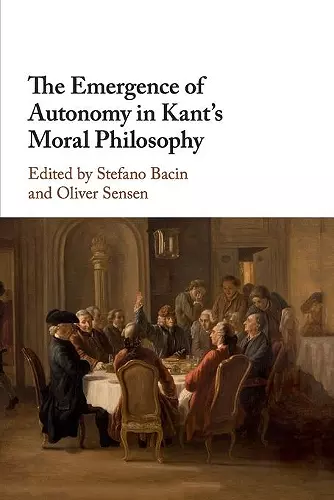The Emergence of Autonomy in Kant's Moral Philosophy
Stefano Bacin editor Oliver Sensen editor
Format:Paperback
Publisher:Cambridge University Press
Published:6th Aug '20
Currently unavailable, and unfortunately no date known when it will be back
This paperback is available in another edition too:
- Hardback£94.00(9781107182851)

A thorough study of why Kant developed the concept of autonomy, one of his central legacies for contemporary moral thought.
Kantian autonomy is one of the central concepts of contemporary moral thought. For Kant scholars, moral philosophers, and human rights theorists - professional and advanced students - this book offers a thorough historical understanding of how and why Kant introduced the concept of autonomy.Autonomy is one of the central concepts of contemporary moral thought, and Kant is often credited with being the inventor of individual moral autonomy. But how and why did Kant develop this notion? The Emergence of Autonomy in Kant's Moral Philosophy is the first essay collection exclusively devoted to this topic. It traces the emergence of autonomy from Kant's earliest writings to the changes that he made to the concept in his mature works. The essays offer a close historical and philosophical analysis of what prompted Kant to develop his conception of autonomy, charting the historical background which prompted his search, and thoroughly analysing different stages of his writings in order to see which element of autonomy was introduced at which point. The resulting volume will be of interest to both scholars and students of Kantian moral philosophy, as well as to anyone interested in the subject of autonomy.
'For those interested in the details of how Kant came to develop his view of autonomy, and the various precursor views he developed and engaged with on the way there, this book is an excellent and welcome addition to the literature.' Notre Dame Philosophical
ISBN: 9781316633762
Dimensions: 230mm x 153mm x 10mm
Weight: 360g
240 pages